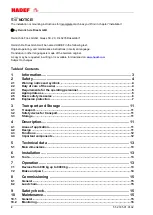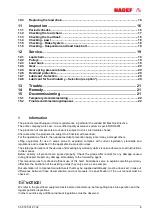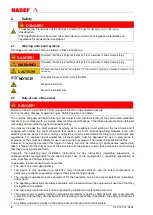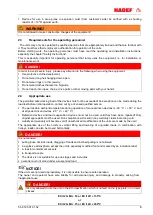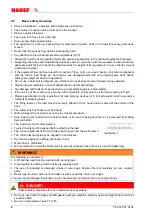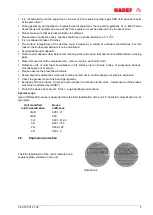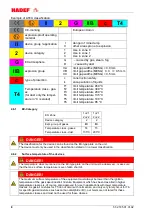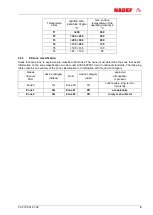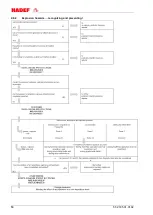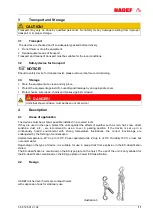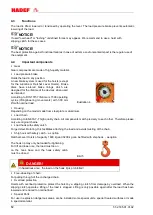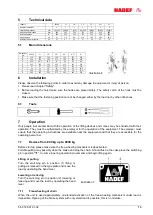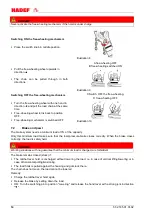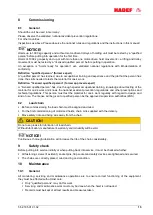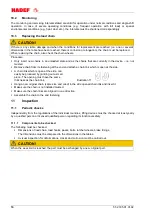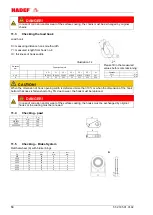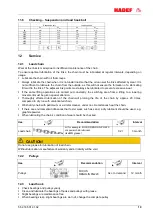
4
5.52.185.01.01.02
2
Safety
DANGER!
To assess the intended use of the devices correctly, the user must carry out an Ex-zone
classification.
The classification must be carried out in accordance with all current legislation, standards and
regulations for areas prone to explosion!
2.1
Warning notice and symbols
Warnings and notice are shown as follows in these instructions:
DANGER!
This means that there is a high risk that leads, if it is not avoided, to death or severe injury.
WARNING!
This means that there is a risk that could lead, if it is not avoided, to death or severe injury.
CAUTION!
This means that there is little risk that could lead, if it is not avoided, to slight injury or damage to the device or its
surrounding.
NOTICE!
Gives advice for use and other useful information.
Danger from electricity.
Danger from explosive area.
2.2
Duty of care of the owner
DANGER!
Failure to follow the instructions of this manual can lead to unpredictable hazards.
For any resulting damage or personal injury, HADEF assumes no liability.
The unit was designed and built following a risk analysis and careful selection of the harmonized standards
that are to be complied with, as well as other technical specifications. It therefore represents state-of-the-art
technology and provides the highest degree of safety.
Our delivery includes the hoist supplied beginning at its suspension and ending at the load hook and if
supplied with control, the control line/hose that leads to the hoist. Further operating material, tools, load
attaching devices as well as main energy supply lines must be assembled according to the valid rules and
regulations. For explosion-proof equipment, all these parts must be approved for use in area prone to
explosion, or they must be suitable for use in area prone to explosion. The owner is responsible for this.
However, in everyday operation this degree of safety can only be achieved if all measures required are
taken. It falls within the duty of care of the owner/user of the devices to plan these measures and to check
that they are being complied with.
Complete the operating and installation instructions by any instructions (regarding supervision or
notifications)that are important for the special kind of use of the equipment, i.e. regarding organization of
work, work flow and human resources.
In particular, the owner/user must ensure that:
The unit is only used appropriately.
The device is only operated in a fault-free, fully functional condition, and the safety components, in
particular, are checked regularly to ensure that it is functioning properly.
The required personal protective equipment for the operators, service and repair personnel is available
and is used.
The operating instructions are always available at the location where the equipment is used and that they
are legible and complete.
The unit is only operated, serviced and repaired by qualified and authorized personnel.
This personnel is regularly trained in all applicable matters regarding safety at work and environmental
protection, and that they are familiar with the operating manual and, in particular, the safety instructions it
contains.
Any safety and warning signs on the devices are not removed and remain legible.


